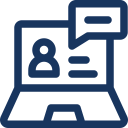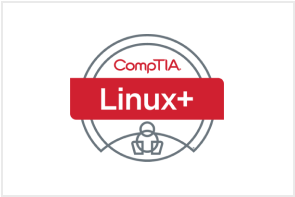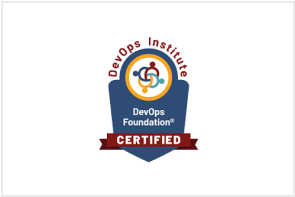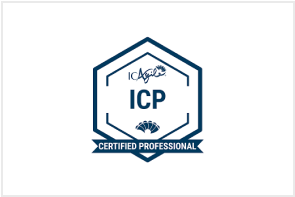SCTP - DevOps Engineer
- Home
- SkillsFuture Career Transition Programme (SCTP)
- SCTP - DevOps Engineer
DevOps Engineer

The SkillsFuture Career Transition Programme for DevOps Engineer is tailored for experienced Infrastructure Engineers seeking to transition into the DevOps domain. This comprehensive curriculum is meticulously designed to bridge the gap between existing infrastructure expertise and the specialized skills demanded in DevOps roles.
The program assumes a foundational understanding of IT infrastructure, networking, and systems administration. Prior experience in managing and maintaining infrastructure components such as servers, databases, and networks forms the bedrock upon which this transition program builds.
Participants are expected to possess familiarity with basic scripting, and a working knowledge of operating systems, particularly Linux. Moreover, a fundamental grasp of software development methodologies, deployment processes, and configuration management tools would be beneficial prerequisites for a seamless transition into the DevOps Engineer track.
The program strategically leverages these prerequisites as a launchpad, guiding experienced Infrastructure Engineers through an accelerated learning path focused on Python programming, Linux administration, Agile principles, DevOps practices, containerization, and essential DevOps toolchains.
What Do DevOps Engineer Do?
DevOps Engineers play a critical role in connecting software development with IT operations. They streamline processes to improve software delivery by automating tasks using tools like Jenkins or GitLab CI. This automation ensures smooth integration and continuous software deployment, making development more flexible.
They handle infrastructure as code (IaC) using tools like Terraform or Ansible to manage and maintain systems. By leveraging Docker and Kubernetes, they make applications scalable, portable, and resource-efficient, improving overall operations.
Communication is key in their job. They bring together development, operations, and stakeholders to ensure everyone is aligned. They also monitor system performance, optimize processes, and prioritize security to prevent issues.
Responsibilities
- Develop and implement strategies to automate software delivery pipelines using tools like Jenkins or GitLab CI, ensuring efficient and reliable workflows from development to deployment.
- Utilize tools such as Terraform or Ansible to manage and maintain infrastructure as code, ensuring scalability, reliability, and consistency in system configurations.
- Implement and manage Docker and Kubernetes to containerize applications, enabling scalability, portability, and resource efficiency, thereby improving overall system operations.
- Act as a bridge between development, operations, and stakeholders, ensuring alignment, collaboration, and understanding across teams for efficient software development and deployment.
- Monitor system performance, identify bottlenecks, optimize processes, and fine-tune configurations to ensure smooth and efficient operations of software systems.
- Prioritize security measures across the development and deployment lifecycle, implementing best practices and measures to safeguard systems and prevent vulnerabilities or breaches.
- Stay updated with emerging technologies and industry best practices, conducting research and implementing new tools or methodologies to enhance and evolve DevOps practices for modern software development needs.
Average salary

$8,000 per month for DevOps Engineer1
Skills Required for this Role
|
Technical Skills & Competencies |
Generic Skills & Competencies |
|
|
Career Support
Career Agility Hub
Enjoy access to NTUC LHUB’s Career Agility Hub (CAH) throughout the SCTP programme. This recruitment platform offers over 100,000 jobs across sectors and levels, along with updates on job fairs and industry events.
Career Resilience Executive Workshop
Gain valuable support in areas such as resume writing and interview techniques with the Career Resilience Executive Workshop (CREW), an initiative by NTUC's Employment and Employability Institute (e2i) and facilitated by NTUC LHUB.
Continued Career Support
Tap on career coaching and placement support services provided by NTUC LHUB and its network of partners. Additionally, enjoy continued access to CAH and receive announcements of curated jobs and job fairs via email.
- Singapore Citizens, Singapore permanent residents, and holders of Long-term visit pass plus (“LTVP+ Holders”) who are aged 21 years old and above.
- Minimum Diploma and above with relevant working experience in software development or network administration.
- Be able to speak, listen, read and write English at a proficiency level equivalent to the Employability Skills Workforce Skills Qualification (ES WSQ) Workplace Literacy (WPL) Level 6
- Be able to manipulate numbers at a proficiency level equivalent to ES WSQ Workplace Numeracy (WPN) Level 6
- Well versed in all Microsoft Office applications, especially Excel, Word, PowerPoint and Outlook
- Strong communication skills and problem-solving skills.
- Ability to multitask.
- Ability to work in a team environment.
- Maintains high integrity and displays reliability.
- Ability to foster strong relationships with stakeholders, communicate effectively and build trust in order to influence, facilitate and resolve conflicts
- Interested participants should apply for the programme.
- Shortlisted candidates will be called for a 15-minute face-to-face or virtual interview.
Training methodology

Instructor-led Virtual Training
Lecture and activity-based training with certified Trainers

Online Learning
Self-paced learning via e-learning platforms

Portfolio Building
Create a winning portfolio filled with hands-on projects that will help you shine in interviews.

Mentorship
Your mentor is your partner-in-Project Management. They are instructors and industry practitioners dedicated to your future success.
Duration & learners schedule

Total duration: 4 months (full-time) / 6 months (part-time)
List of Courses to Attend
Technical modules:
- Basic to Intermediate Python Programming
- CompTIA Linux+
- ICAgile Certified Agile Professional
- DevOps Foundation
- Docker & Kubernetes Foundations
- DevOps Hands-on Training (Jenkins, GitHub, SonarQube, Terraform)
- (SCTP) DevOps Engineer: Capstone Project
- Promote Customer Centric Innovations
- Generate Insights, Propose Solution
- Leadership Communication and Negotiation in VUCA Times powered by Wiley
Course Overview
This course provides a solid foundation in Python programming language, focusing on syntax, data structures, algorithms, and basic software development concepts. Participants learn to write efficient and functional code using Python, an essential skill for automation and scripting in the DevOps ecosystem.
Course Objectives
- Basic Programming Concepts and Introduction to Compiled and Scripting Languages.
- Evolution of Python Programming Language and its current standing.
- Download, install, configure Python, and write our First Python script.
- Understanding Variables, Keywords and Comments.
- Understanding different Data Types in Python.
- Understand and use different Operators built-in Python.
- Understanding Control Flow Structures of Python.
- Understand different Data Structures and their usage.
- Define, Develop and Reuse Functions.
- Define, Import and Reuse Modules.
- Number Processing in Python using NumPy.
- OOP 1: Understand Object Oriented Programming Principles in Python.
- OOP 2: Implement Polymorphism and Inheritance in Python.
- Python File & Exception Handling.
- GUI Application Development using Python.
Course Overview
This certification validates the skills required for Linux system administration, including installation, maintenance, security, and troubleshooting. Linux is prevalent in DevOps environments, making this certification crucial for a DevOps Engineer.
Course Objectives
- Configure, manage, and troubleshoot Linux systems.
- Operate Linux in both on-premises and cloud-based server environments.
- Implement security best practices.
- Use scripting, containerization, and automation to optimize a Linux system.
Course Overview
This certification introduces Agile methodologies and principles, emphasizing collaboration, iterative development, and continuous improvement. Understanding Agile practices is essential for DevOps professionals working in cross-functional teams.
Course Objectives
- Describe how to deliver a project incrementally and iteratively.
- List 3 Agile Practices to deliver projects.
- Describe a mindset that is supportive of the Agile way of working.
- List 2 prioritisation techniques used by Agile Teams.
- Identify stakeholders in a project.
- Describe how Agile Teams should collaborate as guided by Agile principles.
- Define customers’ needs and/or requirements using user stories.
- Identify sequence of work with reference to estimated value of user stories.
- Identify information radiator(s) for tracking progress.
- Identify information radiator(s) for tracking performance.
- Identify retrospective stages to identify, discuss and agree on risk action plans.
Course Overview
This course covers the fundamental principles, practices, and cultural aspects of DevOps. Participants learn about collaboration, automation, measurement, and sharing (CAMS) as core tenets of DevOps culture.
Course Objectives
- Understand what is DevOps.
- Understand the different practices and principles.
- Understand the concepts related to the knowledge sharing.
- Have an idea about exam eligibility and criteria.
Course Overview
Docker and Kubernetes are pivotal technologies in containerization and orchestration. This course delves into containerization concepts using Docker and teaches the management of containerized applications at scale with Kubernetes.
Course Objectives
- Understand what Docker containers are.
- Identify the benefits of using Docker containers.
- Use Docker containers to deploy and scale applications.
- Use Docker containers to manage Images and containers.
- Perform debugging in Docker containers.
- Work with Docker registries.
- Run containers in production.
- Solve problems of orchestration such as high availability, service discovery, and reconciliation.
- Deploy and configure Kubernetes clusters.
- Manage Pod’s services and replication controller.
Course Overview
This segment involves practical training on various tools essential for DevOps implementation. Jenkins for continuous integration/continuous delivery (CI/CD), GitHub for version control, SonarQube for code quality analysis, and Terraform for infrastructure as code (IaC).
Course Objectives
- Understand the core concepts of DevOps.
- Create and manage repositories on GitHub.
- Install and configure Jenkins Master node.
- Install and configure the Jenkins Slave node.
- Create a Pipeline job to automate Git clone, maven package.
- Add spring boot Java webapp server to pipeline.
- Integrate SonarQube and sonar static code analysis in the pipeline job.
- Integrate Nexus and Archive artifacts in the pipeline job.
- Understand Docker and Kubernetes.
- Install Docker, create your own Docker image, Docker hub and Docker volume.
- Integrate Jenkins with Docker in CI/CD pipeline.
- Ansible automation of web infrastructure, user and group creation.
Course Overview
The capstone project integrates the skills and knowledge acquired throughout the program. Participants work on a DevOps project, applying Agile methodologies, utilizing DevOps tools, and addressing challenges to showcase their competency as a DevOps Engineer.
Course Overview
Learn how to foster innovation and growth in your organization by creating customer-centric products and services through the CENTRIC framework. This course is designed for learners in management and supervisory roles.
Course Objectives
- Use the CENTRIC framework to promote customer centric innovations
- Develop assumptions and discover insights from data
- Develop a blueprint to address challenges and opportunities
- Develop concepts and prototypes to meet customers’ requirements
- Test concepts and prototypes by collecting and analysing data metrics
Course Overview
When a leader with strong executive presence speaks, people listen, feel inspired, and know that person has command of the room. They speak with conviction, confidence, and certainly. Their powerful executive presence is clear. Strong executive presence is what gives the best leaders their persuasive power, the respect of everyone in their company, and the ability to influence people at all levels—no matter what position they hold.
Course Objectives
- Evaluate viability and reliability of data.
- Create linkages in the data relationship through pattern identification.
- Analyse data and develop insights.
- Share insights through the use of data visualisation and storytelling.
Course Overview
Today’s world is best described by the concept of VUCA (Volatility, Uncertainty, Complexity, Ambiguity). Tumultuous events have continued to reshape our world and has created unprecedented disruption and stress at the personal level as well as for organizations and their workforces.
Course Objectives
- Plan and prepare alternatives and outcomes to support negotiation objectives.
- Apply communication and conflict resolution techniques to achieve desired negotiation outcomes.
- Finalise negotiation and take necessary follow-up actions to close negotiations.
- Evaluate negotiation outcomes to identify areas of improvement.
Certifications
Participants will be awarded with NTUC LHUB Certificate of Completion, and this programme will also help participants to prepare for the following globally recognised certifications:
- CompTIA Linux +
- DevOps Foundation
- ICAgile Certified Professional



|
Course Fee and Government Subsidies |
||
|
|
Before GST |
After GST* |
|
Full Course Fee |
$18,550.00 |
$20,219.50 |
|
Singapore Citizens and Singapore Permanent Residents aged 21 years and above 1 (70% funding) |
$5,565.00 |
$6,065.85 |
|
Singapore Citizens aged 40 years and above 2 (after 90% funding) |
$1,855.00 |
$2,355.85 |
|
Singapore Citizens eligible for Additional Funding Support 3 (after 95% funding) |
$927.50 |
$1,428.35 |
*GST payable for all funding-eligible applicants: $500.85 (As per SSG’s policy, the GST payable is calculated based on prevailing rates of 9% after the baseline funding subsidy of 70%).
- Base Subsidy - Eligible Singapore Citizens and PRs aged 21 years and above can enjoy subsidies up to 70% of the course fee.
- Mid-career Enhanced Subsidy (MCES) – Eligible Singapore Citizens aged 40 and above can enjoy subsidies up to 90% of the course fee.
-
Additional Funding Support (AFS)- Eligible Singapore Citizens that meet at least one of the following eligibility criteria can enjoy subsidies up to 95% of the course fee:
- Long-term unemployed individuals (unemployed for six months or more); or
- Individuals in need of financial assistance – ComCare Short-to-Medium Term Assistance (SMTA) recipients or workfare Income Supplement (WIS) recipients; or
- Persons with Disabilities
Funding Eligibility Criteria
- Trainee must be a Singapore Citizen, Singapore Permanent Resident, or LTVP+ Holder aged 21 years old and above
- From 1 October 2023, attendance-taking for SkillsFuture Singapore's (SSG) funded courses must be done digitally via the Singpass App. This applies to both physical and synchronous e-learning courses.
- Trainee must achieve at least 75% attendance for each module
- Trainee must pass all prescribed tests / assessments and attain 100% competency.
- NTUC LearningHub reserves the right to claw back the funded amount from trainee if he/she did not meet the eligibility criteria.

